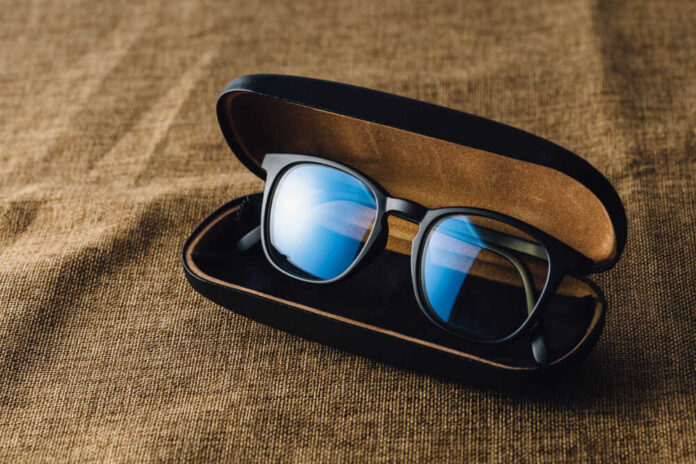
Blue light glasses have stormed the market, claiming to block a portion of blue light emitted by digital screens. They come with promises of reducing eye fatigue, enhancing visual performance, and even improving sleep quality.
Sounds like the perfect solution for our screen-centric lives, doesn’t it?
The Latest Science Weighs In
A newly published study as of August 2023 dives into the legitimacy of these claims, employing rigorous scientific methodology to test whether blue light glasses truly deliver on their promises.
The study considered randomized controlled trials (RCTs) with sample sizes ranging from 5 to 156 participants, analyzing metrics such as visual fatigue, critical flicker-fusion frequency (CFF), and sleep quality.
Visual Fatigue and Blue Light Glasses
One of the primary claims of blue light glasses is that they alleviate eye fatigue.
However, according to the study, there might be no significant difference in visual fatigue scores when using blue light filtering lenses as opposed to regular lenses. This revelation directly challenges the notion that wearing blue light glasses can lead to a more comfortable and sustained screen-time experience.
Do They Help Sleep Quality?
As for claimed benefits for sleep quality, another significant selling point for these glasses, the study reveals conflicting results.
Some trials report an improvement in sleep scores, while others show no significant difference between those wearing blue light-filtering lenses and those who don’t. Therefore, the elusive promise of a good night’s sleep might remain just that—a nebulous notion with no conclusive scientific backing.
Adverse Effects: The Lesser-Known Reality
Interestingly, the study also explores the potential adverse effects of wearing blue light glasses.
Some of the reported negative effects include increased depressive symptoms, headaches, and general discomfort. While these adverse effects are infrequent, they’re crucial to consider when weighing the pros and cons of this optical trend.
What’s Missing from the Lens
Beyond these fundamental measures, the study found it impossible to determine the effects of blue light glasses on various other outcomes such as contrast sensitivity, color discrimination, and even overall patient visual satisfaction.
These gaps in our understanding raise questions about the categorical claims made by marketers.
The Blur of Belief and Science
While the allure of a simple solution to complex problems like eye strain and sleep deprivation is undeniably attractive, it’s important not to let the gloss of marketing overshadow the complexity of human biology.
This new study, along with other recent research, shines a light on the current state of ambiguity surrounding blue light glasses, urging us to be cautious as consumers and critical as thinkers.
In a world where answers are expected at the click of a button, it becomes all the more critical to appreciate the value of nuanced questioning.
Do blue light glasses actually work?
The answer is far from black and white. It exists in shades of gray that science is still striving to define. Until then, we may want to hold off on seeing our digital world through a blue-tinted lens.






















